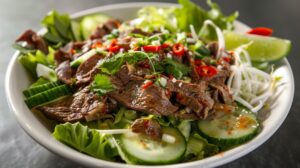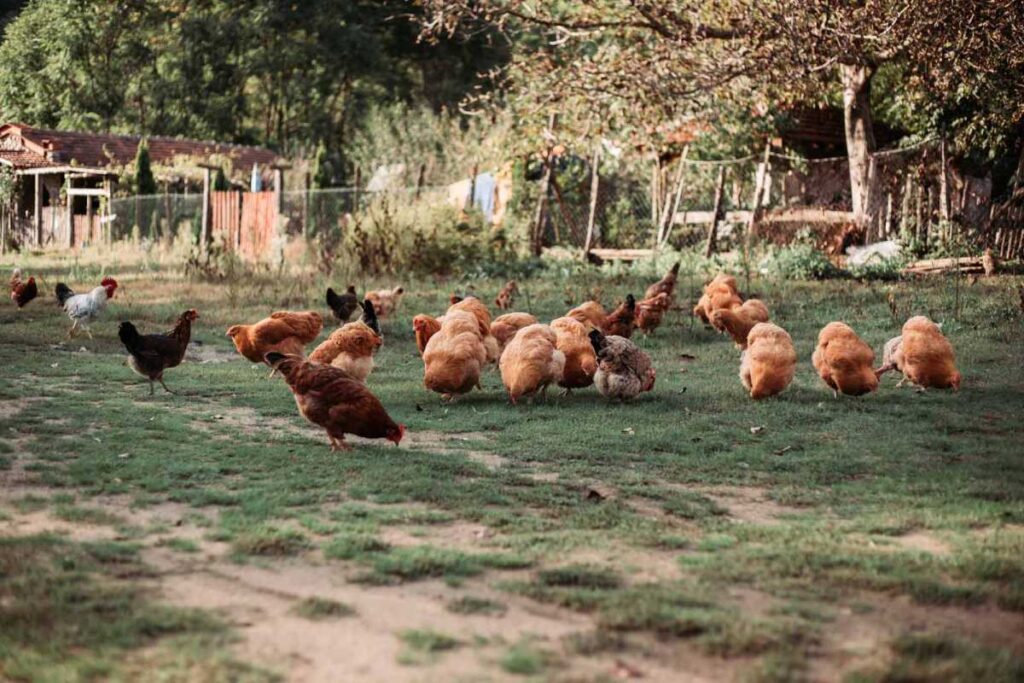
Understanding Free-Range Food — Benefits for Animals and Consumers
With one of the highest consumption rates in the world, Australians love eating meat. We enjoy the taste of red and white meats, and we benefit from the nutritional advantages of animal-based protein. The big meats all have a vibrant industry in Australia, from beef and lamb to pork, chicken, and game meats.
Throughout the history of Australia, agricultural and consumption patterns have continued to evolve. Along with the freshness and quality of local meat products, consumers are increasingly concerned about where their meat comes from.
The open spaces of Australia have long fostered ‘natural’ agricultural practices. The nation is largely self-sufficient when it comes to meat, and good quality produce is widely available at relatively low prices. The farming world has shifted over recent years, however, with feedlots and factory farms more prevalent than ever before. In an environment defined by increased industrialisation, the market has been balanced somewhat by a re-emergence of traditional farming practices and innovative free-range food industries.
The free-range industry has grown by leaps and bounds over recent years, as consumers get accustomed to more ethical, nutritious, and tasty meat products. Let’s define free-range food, look at modern standards and certifications, and review the many benefits of free-range food for animals and consumers.
What is free-range food?
Free-range food describes food produced from free-range farming — a method of animal husbandry where animals move freely instead of being enclosed at all times. Free-range farming practices are normally associated with outdoor roaming, with ranging spaces designated and fenced to enable and manage animal movement. Free-range food comes directly from this environment, including beef, lamb, pork, chicken, eggs, and dairy products. The term ‘free-range’ is used in two distinct but overlapping ways: as a descriptor for husbandry methods and as a marketing term for meats and dairy products.
In order to meet the free-range standard and receive an associated label, animals need to roam freely outside for at least part of the day. This category of food offers a range of benefits to animals and consumers, including better taste, a more balanced nutritional profile, and significant ethical advantages. As mentioned below, there is no single descriptor for free-range food, with different standards and certifications used across industries and nations.
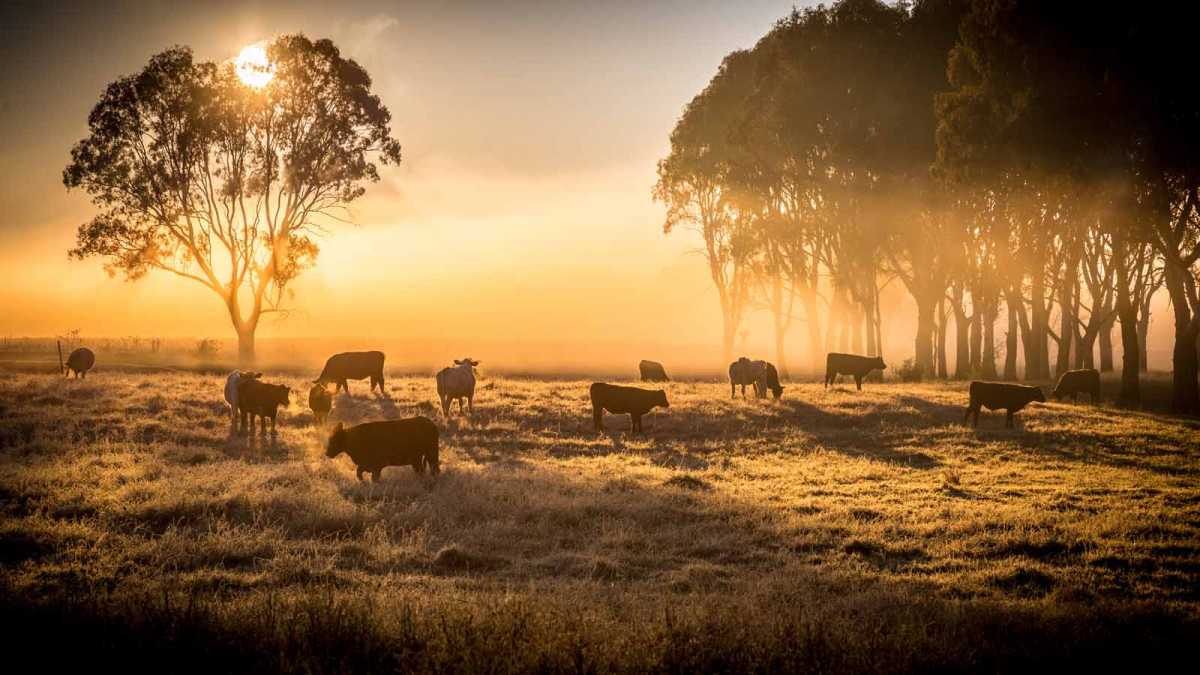
Short history of free-range food
In a very real sense, the history of free-range farming stretches back to the beginning of agriculture. Traditional herding practices were completely free-range until the development of industrial wire, and even then, fencing was typically used to enclose animals in designated outdoor spaces. Even when fenced, early farmers gave their animals access to a varied diet sourced from the surrounding environment. While containment areas gradually became smaller over time, pretty much all farming was free-range until the 20th century.
The situation changed in the 1920s, which is when vitamins A and D were discovered. The agriculture industry now had a reason to confine animals, with manufactured vitamins providing a simple and economical substitute for green feed and sunshine. Instead of relying on time-consuming herding practices and expensive fencing materials, farmers started to confine their animals on a commercial scale. More discoveries were made over the decades to accelerate this practice, with animal feed additives and preservatives used to control quality and maximise productivity.
Free-range standards and certifications
For a very long time, Australia had no national standards for free-range food. Whether you were talking about eggs, pork, lamb, or beef, consumers had a tough time knowing where their food came from. While this situation has greatly improved in recent times, things can still be very confusing. There are several national certification schemes for different types of free-range food, along with the federal government’s Model Codes of Practice for the Welfare of Livestock.
Free-range poultry accreditors include FREPA, the RSPCA Approved Farming Scheme, and Humane Choice, with indoor stocking limits ranging from 28-40 kg per square metre based on the standard used. Free-range pork is certified by the Australian Pork Industry Assurance Program (APIQ), with outdoor space needing to be 1.5 times larger than indoor space to meet this standard. The RSPCA Approved Farming Scheme is also relevant, with outdoor bred pigs requiring space to move beyond sow stalls or farrowing crates.
For many years, beef and lamb in Australia were all free-range, although feedlots are now more common. While 100% grass-fed meat can be found through many butchers, limited feedlot association meets both the Model Codes and RSPCA standards. Whether you’re looking for free-range chicken, free-range beef, or something else entirely, it’s important to check the labels and read the fine print. While lots of supermarkets and retailers deal with free-range produce, buying food from a dedicated free-range butcher is the best way to ensure quality standards.
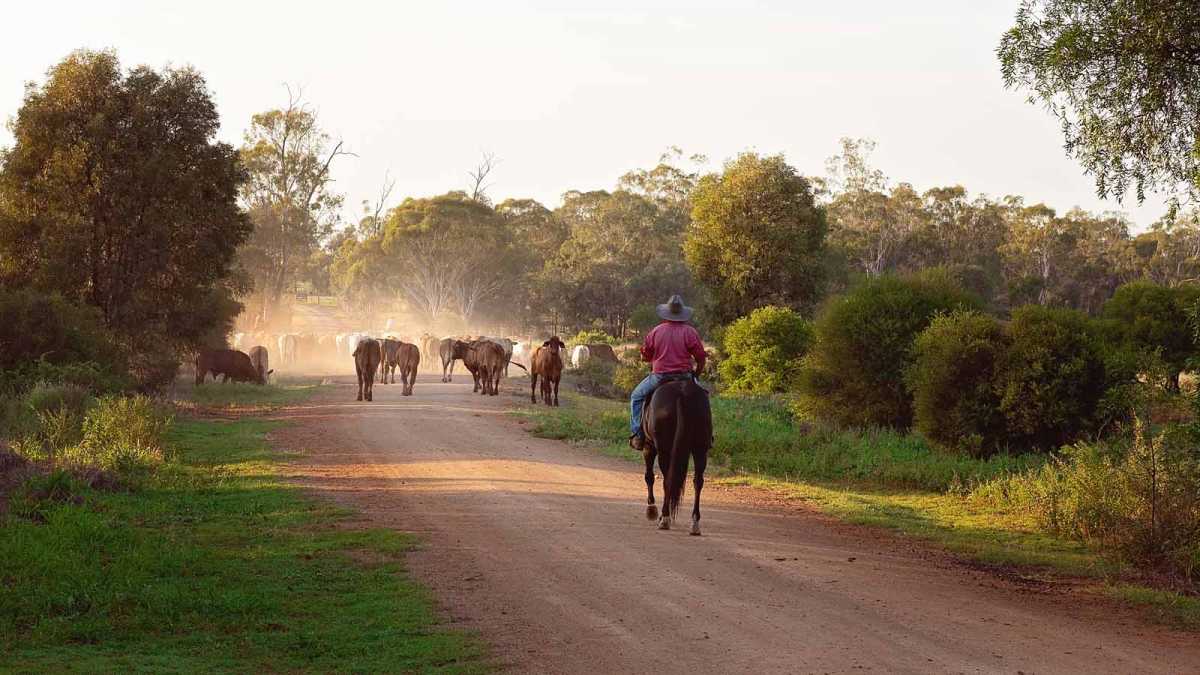
The many benefits of free-range meat
Free-range food offers a range of benefits to all parties. Animals have improved health and quality of life outcomes, and consumers benefit from better tasting and more nutritious meat products.
How do free-range animals benefit?
Animals that live in a free-range environment experience many health and lifestyle benefits. The freedom to range outdoors is important for animal welfare, as natural foraging is a defining behaviour for many species. When given the opportunity, most animals will spend their time foraging, moving their bodies, and stimulating their minds through interaction with the environment. For example, chickens spend time pecking and scratching, and cows spend time in groups eating grass and enjoying the shade.
A free-range lifestyle gives animals an opportunity to interact socially and form groups. They have the ability to practice a range of natural behaviours and enjoy a better quality of life. Whether it’s nesting, foraging, or just wandering around, greater movement and activity can lead to enhanced bone and muscle strength. All-in-all, free-range animals have a much better opportunity to live closer to nature.
It’s not all good news, however, with outdoor roaming leading to greater exposure to predators such as foxes and eagles. In a commercial free-range environment, farmers and producers will control animal movement to reduce the chances of loss. Better control over the natural world, mostly through technology, is the chief reason for the sharp rise in factory farming. However, while more controlled environments may lead to less stock loss and more consistent production quantities, animal welfare may suffer along the way.
How do consumers of free-range food benefit?
Whether you’re talking about eggs, chicken, or beef, free-range food has a better taste and offers a variety of nutritional benefits, especially when consumed as part of a healthy diet and combined with good exercise and lifestyle habits.
Nutritional benefits of free-range food
According to one study, eggs from free-range hens contain 33% less cholesterol and 25% less saturated fat than factory-farmed eggs. They’re also more nutritious, with 66% more vitamin A, 100% more omega-3, 300% more vitamin E, and 700% more beta-carotene. Overall, free-range chickens live a more natural life than factory-farmed animals, with greater freedom of movement leading to more nutritious egg and meat products.

Large animals also benefit from space to roam, including both meat and dairy animals. For example, the unique digestive system of cattle has evolved to deal with high-fibre and low-starch grasses. While they gain weight more rapidly when fed with grain, this reduces the nutritional value of the meat and dairy produced. Grass-fed meat contains lower fat content, higher levels of vitamins and antioxidants, and more healthy omega-3 fatty acids.
Taste benefits of free-range food
Along with nutrition, free-range food is also loved for its rich and delicious taste. Free-range eggs often have a deeper colour than other eggs, which comes through to the palate as a more complex taste profile. The same thing can be said for meats, which are often more complex and easier to digest. The consistency associated with factory-style meat may be good for producers, but for consumers, it’s often experienced as simple, dull, and lacking vibrancy.
Ethical benefits of free-range food
Last but not least, consumers of free-range food benefit greatly from an ethical perspective. While this advantage may be less tangible, that doesn’t make it any less real. If you care about the welfare of animals but still want to consume meat, eating free-range food is a simple decision that can make a world of difference. While the animals we eat all have the same final outcome, allowing them to live naturally in the great outdoors provides them with the best life possible.
How to find free-range food you can trust
If you want to find a reliable source of free-range meats, it’s important to deal with the experts. While free-range eggs and other products are more widely available than ever before, getting the right information before purchasing can still be challenging. When you buy meat through a supermarket or via a normal butcher, food sources are unknown and farming conditions are often opaque. While industry standards and certification systems do exist, as previously mentioned, things are not as simple as they seem.
Luckily, there are many great butchers that specialise in free-range produce, including a growing number of online butcher operations. Many of these butchers have a working relationship with farmers and producers, so you can get first-hand knowledge and make buying decisions with confidence. If you want to experience the wonders of free-range food and enjoy the advantages of online butcher delivery, we would love to help. For the best free-range butcher in Melbourne, please contact us or visit our website today.

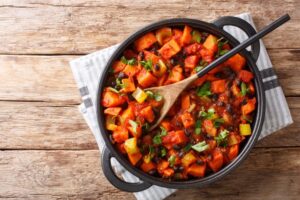




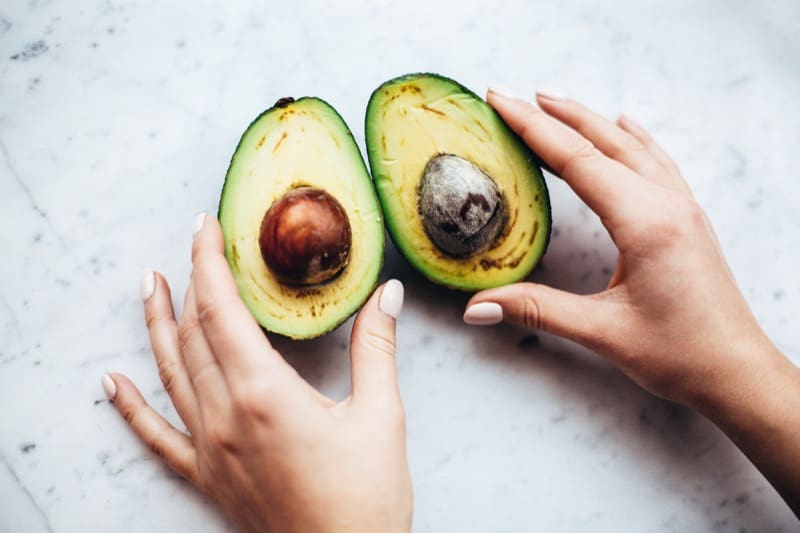
![[object Object]](https://localfoodmarketco.com.au/wp-content/uploads/2021/10/Chilli-Cashew-Chicken-Noodles-LFMC_V1-300x168.jpg)

